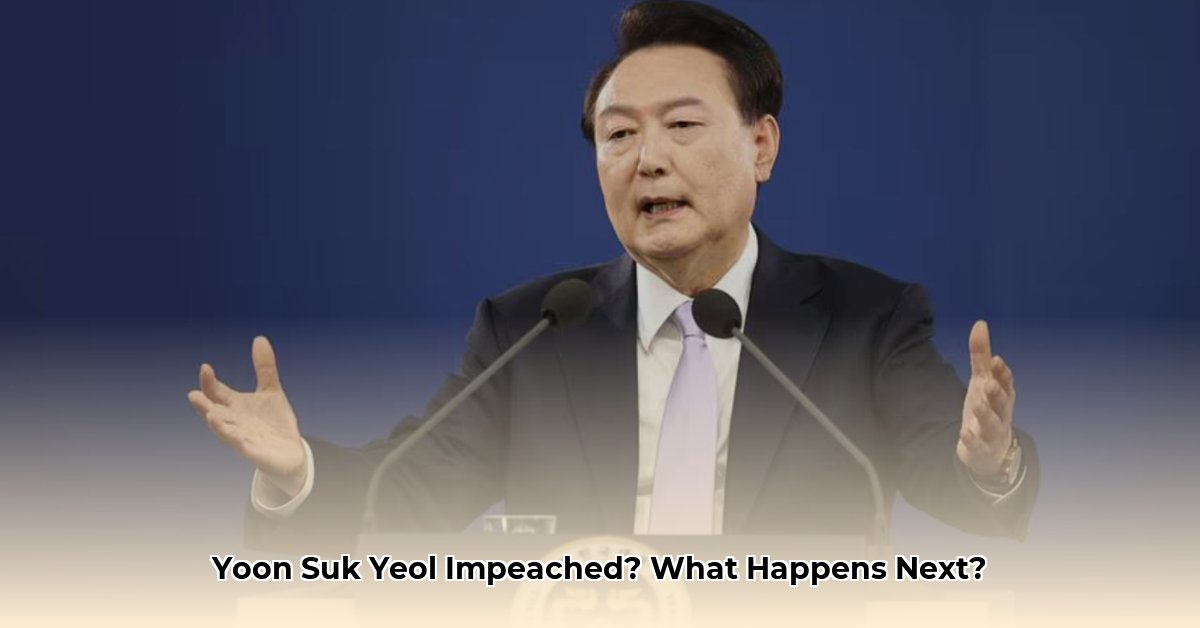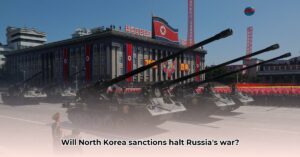Yoon Suk Yeol’s Downfall: From Presidency to Impeachment
South Korea experienced a period of intense political upheaval in December 2024. President Yoon Suk Yeol, elected in May 2022, was impeached by the National Assembly following a controversial declaration of martial law. This dramatic turn of events raises questions about the future of South Korean politics and the stability of the region.
The Martial Law Decree: A Critical Misstep
On December 3, 2024, President Yoon declared martial law, citing political instability and potential threats. This decision, though quickly reversed by the National Assembly within hours, sparked immediate outrage and protests. Critics viewed the declaration as an overreach of power, suggesting an attempt to suppress dissent rather than a genuine response to a national crisis. Some analysts suggest this drastic action may have stemmed from the intense political pressures Yoon faced, including deep divisions within the government and growing opposition to his policies. This incident significantly eroded public trust and fueled the momentum for impeachment.
Impeachment and Arrest: A Swift Downfall
The National Assembly initiated impeachment proceedings against President Yoon on December 14, 2024. An arrest warrant subsequently followed. The charges included abuse of power and violation of the constitution, primarily stemming from the martial law declaration. Several high-ranking officials, including the defense minister and police chief, were also arrested, raising questions about the extent of the crisis and the potential involvement of others within the administration. The speed of these events highlights the volatile political climate and the deep divisions within South Korea.
The Road to the Presidency: A Controversial Figure
Yoon Suk Yeol’s path to the presidency was marked by both accomplishment and controversy. His career as Prosecutor General saw him take on high-profile corruption cases, earning him a reputation as a tough and uncompromising figure. This background likely influenced his approach to the presidency, but it also may have contributed to his challenges in navigating the complexities of national politics. His tough stance and perceived lack of political finesse likely exacerbated existing tensions, contributing to the political instability that characterized his time in office.
Political Fallout and International Concerns
The impeachment of President Yoon has significant implications for South Korea. The political uncertainty raises concerns about the country’s stability and its ability to address pressing domestic and international challenges. The impeachment process, even though ultimately unsuccessful, has undoubtedly left a mark on South Korean politics. It has exposed deep societal divisions and raised important questions about the balance of power within the government.
Internationally, the situation has raised concerns about regional stability. South Korea’s strategic position in East Asia, its relationship with the United States, and its ongoing tensions with North Korea necessitate careful diplomacy. The political turmoil surrounding the impeachment has the potential to disrupt these delicate relationships and requires ongoing analysis to fully understand its long-term impact.
Timeline of Key Events
| Date | Event |
|---|---|
| May 2022 | Yoon Suk Yeol elected President of South Korea. |
| Dec 3, 2024 | Martial law declared and subsequently overturned. |
| Dec 14, 2024 | Impeachment proceedings initiated and arrest warrant issued. |
What Sparked the Crisis? Analyzing the Reasons for Impeachment
The impeachment attempt against President Yoon stemmed directly from his controversial declaration of martial law. This action triggered accusations of abuse of power, with critics arguing that Yoon sought to suppress political dissent and consolidate his authority. The opposition viewed the move as a drastic overreaction to political challenges and a threat to democratic processes.
Adding fuel to the fire, a high-ranking intelligence official refused to carry out a presidential order to arrest political figures, citing concerns about the legitimacy of the arrests. This act of defiance, coupled with Yoon’s subsequent dismissal of the official, further fueled suspicions of power abuse and bolstered the case for impeachment. Even within his own party, support for Yoon wavered. The leader of the People Power Party publicly declared him unfit for office, signaling a critical loss of confidence within his own ranks. These combined factors created a perfect storm, leading to the rapid escalation of the impeachment crisis.
Unpacking the Martial Law Controversy
The martial law declaration was a pivotal moment in Yoon Suk Yeol’s presidency, ultimately leading to his downfall. The declaration, though short-lived, was seen by many as a drastic overreach of power. It raised serious concerns about President Yoon’s judgment and his commitment to democratic principles. While the official justification for martial law cited political instability and potential threats, critics argued that it was a thinly veiled attempt to silence opposition and consolidate control. The rapid mobilization of troops to key government locations, including the National Election Commission, further fueled these suspicions.
The immediate backlash from the public and the National Assembly was swift and decisive. Widespread protests erupted across the country, condemning the President’s actions and demanding his resignation. The National Assembly, acting as a critical check on presidential power, voted to overturn the martial law decree within hours of its implementation.
The Aftermath and Long-Term Implications
The attempted impeachment of Yoon Suk Yeol, even though it ultimately failed, has left a lasting impact on South Korea. The crisis exposed deep political divisions within the country and raised serious questions about the stability of its democratic institutions.
The implications of this political turmoil extend beyond South Korea’s borders. The country plays a crucial role in regional security and international relations. The uncertainty surrounding the impeachment process has raised concerns about South Korea’s ability to maintain its alliances and navigate complex geopolitical challenges. The situation has also prompted reflection on the broader implications for democratic governance and the importance of checks and balances on executive power.
This intricate situation continues to unfold, and further research and analysis are crucial to fully understanding its long-term impact on South Korea and the region. The events surrounding Yoon Suk Yeol’s impeachment underscore the fragility of democratic systems and the importance of upholding the rule of law.







